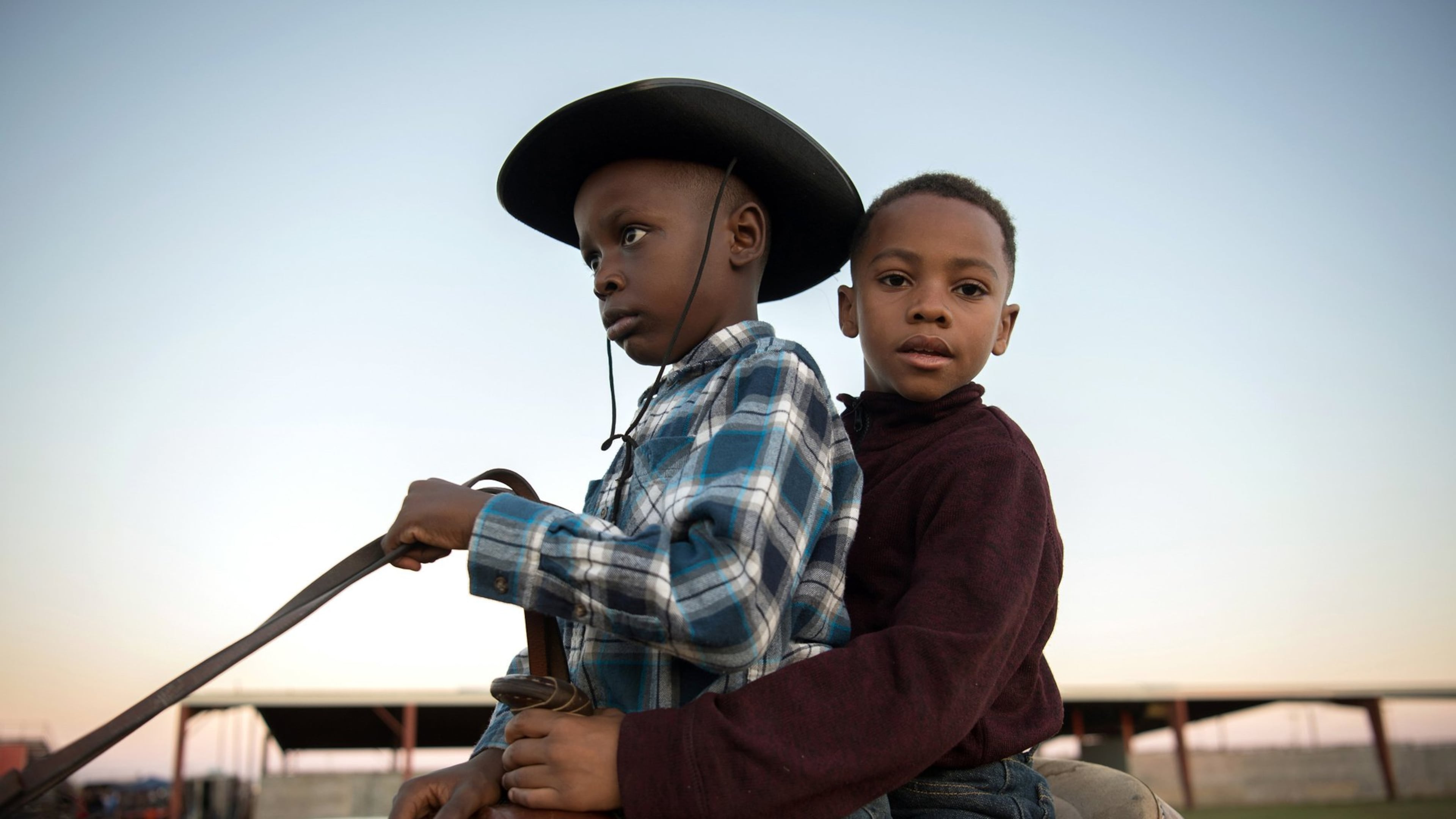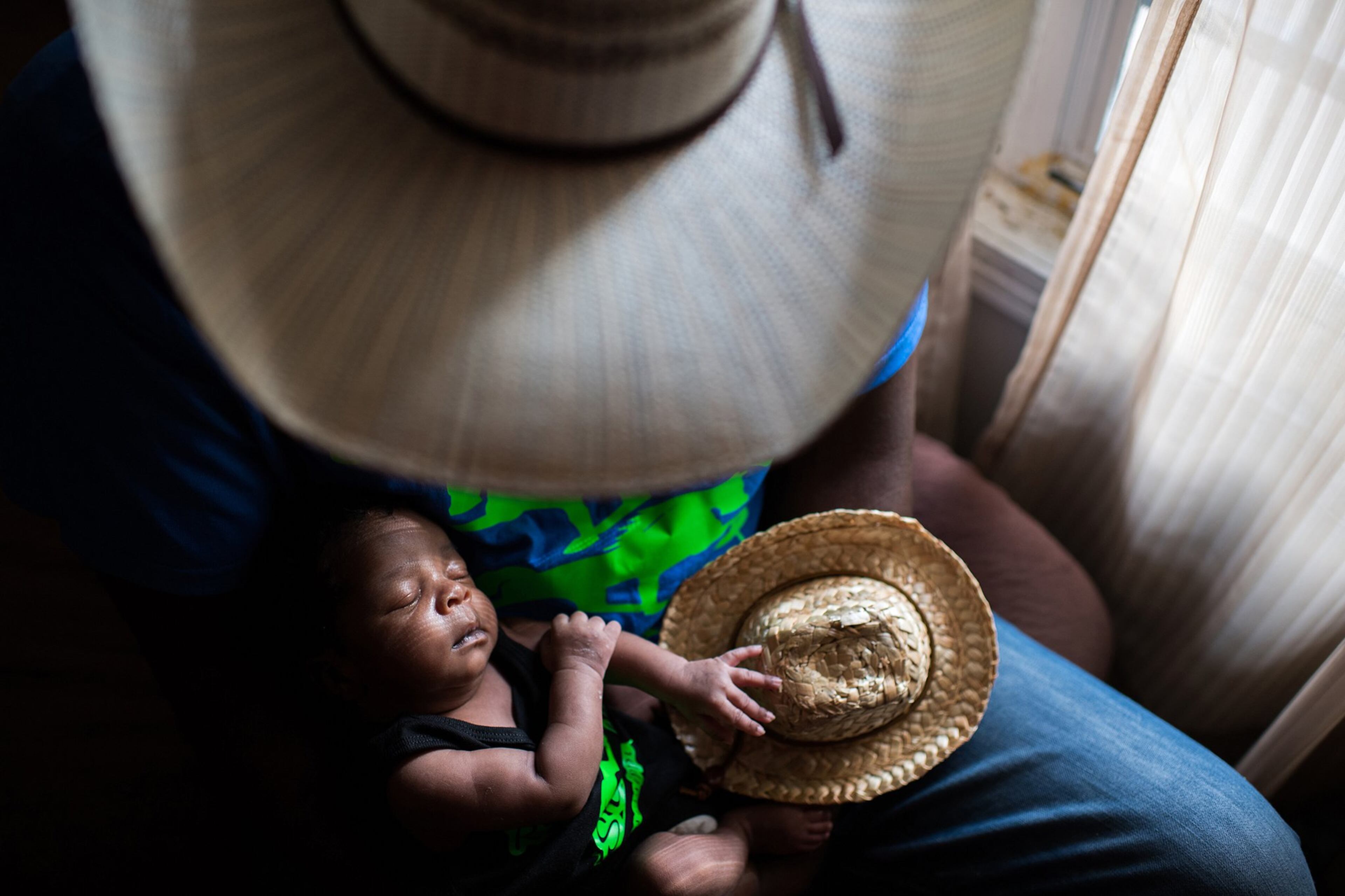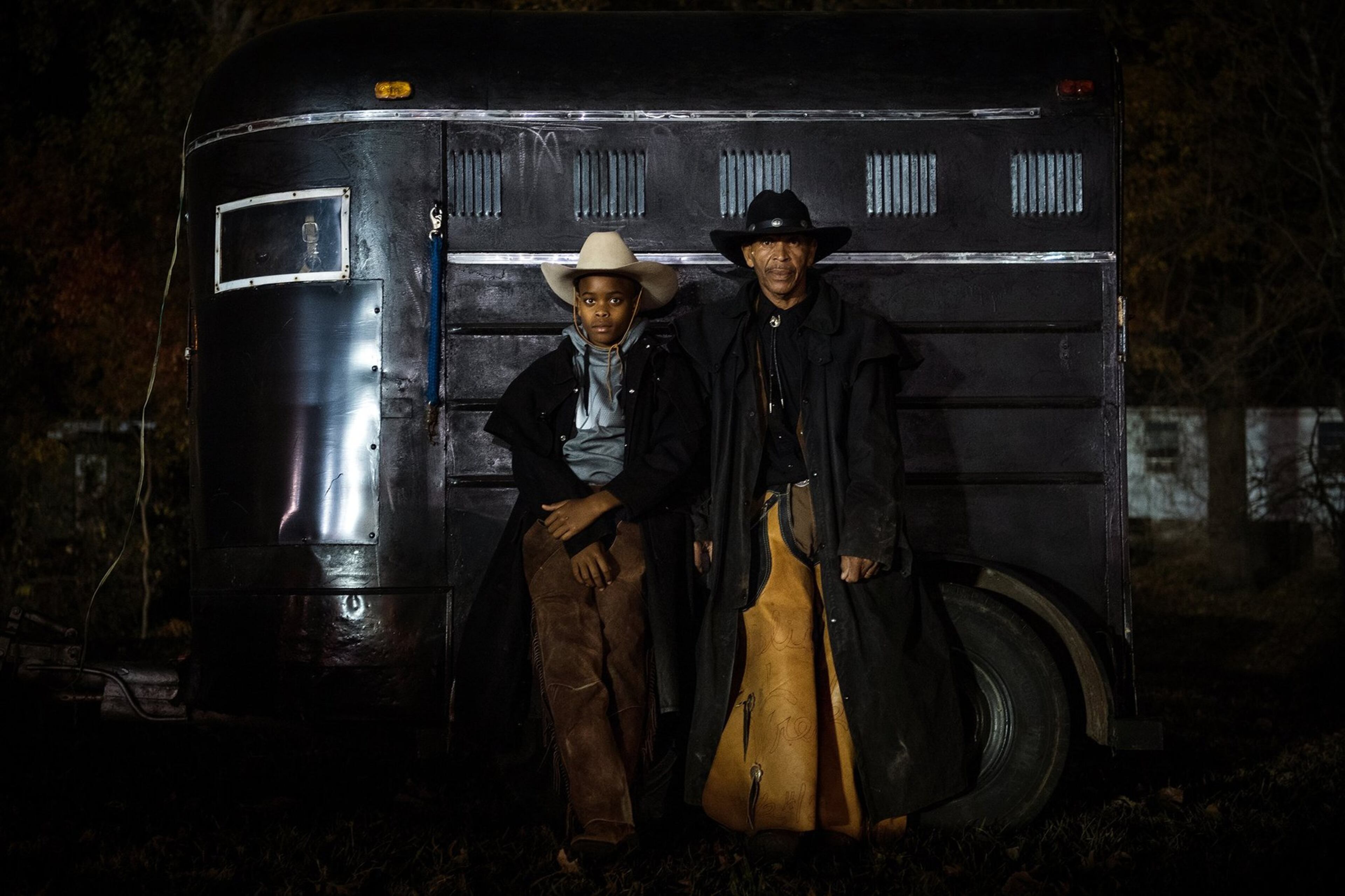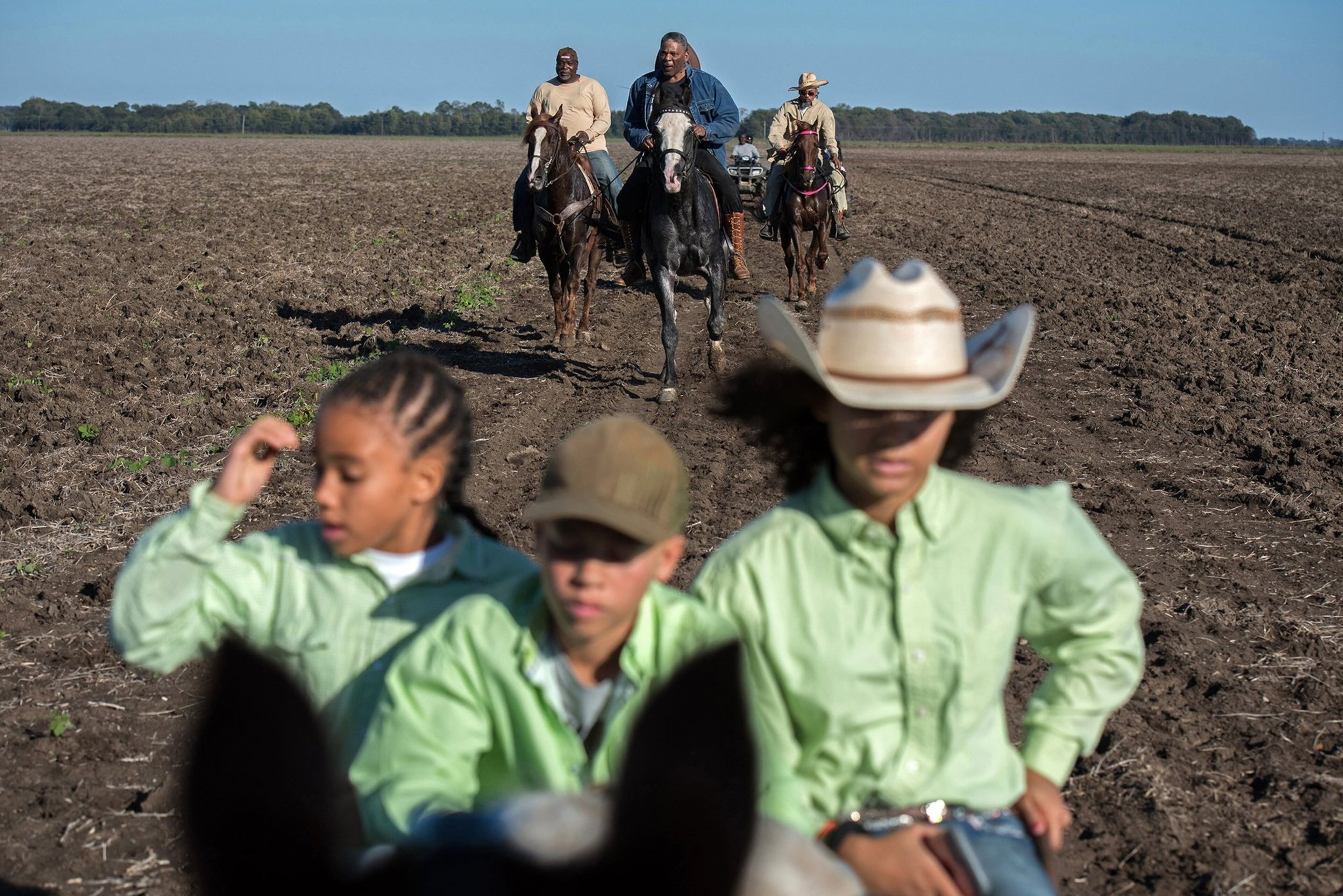Atlanta photo exhibit documents black Southern cowboys

Photographer Rory Doyle has had his work featured in media as diverse as “The Guardian,” “The Washington Post,” ESPN, BBC and BuzzFeed. But that across-the-board interest is understandable. Doyle documents a largely unknown and highly fascinating phenomenon in his photographs on view at the Hudgens Center for Art & Learning. His subjects in “Delta Hill Riders” are black cowboys and cowgirls living in the Mississippi Delta who travel a national circuit of black rodeos, or just dance on horseback in front of glowing McDonald’s signs back home in “Big Mac Dancing.”
The images on view at the Hudgens Center depict a subculture most thrilling for how it disrupts the standard misconception of what a cowboy or cowgirl looks like, as well as stereotyped notions of black life. Doyle’s use of light and his compositions tend to add a gentle, romantic tone to the lives he depicts. The work also refers to an actual historically overlooked reality of black cowboys in post-Civil War America, who were integral to American frontier life. Forgoing the honeyed Madison Avenue-devised sunsets of the Marlboro Man ads, Doyle instead shows the enchanted role horses, nature and a connection with past traditions entail for this small town Mississippi cowboy community.

The juxtapositions in Doyle’s images are rich and often humorous, with riders dressed in sneakers and visors, gold grills and contemporary sportswear but also cowboy hats or boots in an interesting mash-up of familiar styles of urban and rural life blended into new form. Doyle also documents equally jarring collisions of club culture and cowboy culture in the bars where these rural cowboys and cowgirls congregate. In “Delacroix-like Dance,” (2018) Doyle manages to combine stripper poles, twerking and a reference to the French romantic painter Eugène Delacroix in the intertwined bodies of men and women dancing.

There is a tenderness to the images in works like “Western Light” (2018) of a horse barn flooded with sunlight from an open door. In the foreground an older man sits, eyes closed, as if soaking in the heat and light, while a girl grooms a horse in the distance behind him and the light filters through the animal’s cornsilk-colored tail. We’ve become so used to seeing black men represented in less than flattering ways, that it’s all the more profound to see the tenderness on display in Doyle’s work, from an intergenerational portrait of a grandfather and grandson posed against a horse trailer in “Javaris and Gramps” (2017) to his image of a man shot overhead, hidden beneath his cowboy hat, cradling a tiny newborn in “Newest Cowboy in Town” (2018). The delicacy and sweetness of these relationships are visible in an image of two small boys riding a horse together in “Young Riders” (2018) the lead rider vigilant and cautious as he grips the reins and surveys the landscape ahead and the other one unselfconsciously embracing the rider to hold the saddle horn. Many of the images allow for a similar tenderness and sense of conviviality between boys and men that offer a nuanced vision of male relationships.

Part of the cowboy ethos has been about escape and freedom. From John Wayne in “The Searchers” to Clint Eastwood’s revisionist loner in “Unforgiven,” a self-imposed exile from mainstream society is integral to our idea of the cowboy’s make and model. So it’s no wonder then, that black Americans living in the South would identify with that ideal of occupying another, separate realm. The project reflects the necessity of community and a shared sense of rites and rituals that might help sustain black Americans living in the deep South.
Art review
“Delta Hill Riders: Photographs by Rory Doyle”
Through November 23. 10 a.m.-5 p.m. Tuesdays, Wednesdays, Fridays, Saturdays, 10 a.m.-8 p.m. Thursdays. Free. Hudgens Center for Art & Learning, 6400 Sugarloaf Parkway, #300, Duluth, 770.623.6002, thehudgens.org
Bottom line: Beautifully composed portraits of a community of black cowboys living in the Mississippi Delta captures a hidden dimension of American life.

